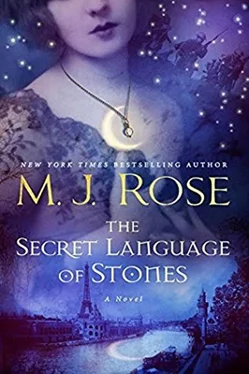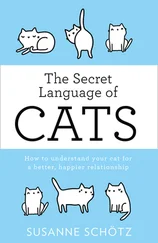M. Rose - The Secret Language of Stones
Здесь есть возможность читать онлайн «M. Rose - The Secret Language of Stones» весь текст электронной книги совершенно бесплатно (целиком полную версию без сокращений). В некоторых случаях можно слушать аудио, скачать через торрент в формате fb2 и присутствует краткое содержание. Жанр: Триллер, на английском языке. Описание произведения, (предисловие) а так же отзывы посетителей доступны на портале библиотеки ЛибКат.
- Название:The Secret Language of Stones
- Автор:
- Жанр:
- Год:неизвестен
- ISBN:нет данных
- Рейтинг книги:4 / 5. Голосов: 1
-
Избранное:Добавить в избранное
- Отзывы:
-
Ваша оценка:
- 80
- 1
- 2
- 3
- 4
- 5
The Secret Language of Stones: краткое содержание, описание и аннотация
Предлагаем к чтению аннотацию, описание, краткое содержание или предисловие (зависит от того, что написал сам автор книги «The Secret Language of Stones»). Если вы не нашли необходимую информацию о книге — напишите в комментариях, мы постараемся отыскать её.
The Secret Language of Stones — читать онлайн бесплатно полную книгу (весь текст) целиком
Ниже представлен текст книги, разбитый по страницам. Система сохранения места последней прочитанной страницы, позволяет с удобством читать онлайн бесплатно книгу «The Secret Language of Stones», без необходимости каждый раз заново искать на чём Вы остановились. Поставьте закладку, и сможете в любой момент перейти на страницу, на которой закончили чтение.
Интервал:
Закладка:
“So there’s more magick attached to a talisman?” she asked.
Madame Alouette didn’t seem disturbed by the idea. Few of my customers did. After all, since the middle of the last century, séances and psychics have been very much in vogue, often discussed and dissected, despite whatever laws were in effect to tamp them down. Famous figures from Victor Hugo, more than seventy years ago, to the present-day author Arthur Conan Doyle were convinced there was more to our world than what we could see and hear and rationally know.
“Yes. Magical powers can be produced by tapping and then trapping astral influences.”
“Which do you make?”
“Talismans.”
“How?”
“I enclose an object belonging to the soldier inside a piece of rock crystal that I’ve carved with the soldier’s name, astrological symbol, his birth and his death dates. I fill in the crevices with powder from his birthstone. Then, using gold wire, I enclose the crystal and lock it in.”
“You know, I’m a sculptor,” she said. “I never realized it until I heard you talk just now, but jewelry is miniature sculpture, isn’t it?”
“I’ve never thought of it that way before either, but of course you are right. What kind of sculpture do you do?”
“Before the war I did portraits, mostly busts. But three years ago, Anna Coleman Ladd commandeered me. She’s the American who opened a studio here to make metallic masks for soldiers who return from war with facial disfigurements. To give them back some dignity. She believes each of us has a divine right to look human. That is how Madame Maboussine and I met. She brought her older son to our studio. He had extensive cheekbone and ear damage.”
I knew about Anna Coleman Ladd. The newspapers had printed a series of reports about her “Studio of Miracles,” as they called it. Shrapnel made a horrible mess of many soldiers’ faces that couldn’t be repaired with surgery. Some men lost sections of their noses, chins, chunks of their cheeks, an ear. Ladd’s studio provided a noble service to those boys. In London, another sculptor, Francis Derwent Wood, did the same work.
“It’s really a pleasure to meet you then. I’ve read about the amazing work you are all doing. This war is…” I shrugged.
What more could be said about the never-ending war?
“I prayed my son would never need me to help him… but now I wish he did. At least then he would be alive… Well, it doesn’t matter what I wish, does it?… Now I am here.”
“Tell me about your son,” I said, steeling myself for a fresh onslaught of heartache.
With measured motions, she unclasped her purse, reached inside, and pulled out a piece of paper that fluttered to the floor. I bent to retrieve it and found myself holding a black-bordered obituary notice, carefully cut out of a newspaper.
“No… no… that’s not what I wanted to give you.” She held out her hand.
As I returned it to her, I tried to read it, but it was upside down and I wasn’t able to make out the details.
Returning the notice to her purse, she pulled out an envelope and gently emptied its contents on the desk, as if handling something as fragile as a spider’s web.
I examined the lock of hair, the same dark chestnut as her own, tied with a faded blue satin ribbon.
“He had his first haircut at three years old. How he hated it,” Madame Alouette said, reaching out and touching her son’s hair with her forefinger.
I remained quiet while she lived out the memory. Her sorrow overwhelmed me and sent chills down my back. Any time a client began to recall her loved one and share her story, each word spun an invisible thread that connected us. Her emotions traveled via those byways, and I experienced them as if they were my own. I found no escape, no option but to suffer through each woman’s mourning.
“But he needed that haircut. My husband said he looked like a little girl with all those curls. And he did.”
She stroked the strands, and I pictured the child in the barbershop chair.
“The barber did everything he could to distract him, but my son fought back, covering his head with his arms so ferociously none of us could pry them apart. Such a determined little boy.” She looked up, her eyes bright with tears. “Who became such a determined man.”
“What did he do? Before the war, I mean.”
“He was a journalist. Maybe you read some of his pieces? Since the war began, he’s been writing a column of weekly letters from a soldier at the front to his fiancée.”
“She must be devastated.”
“Oh, he didn’t have a fiancée. I’m not even sure if he left a special woman behind.” She smiled sadly. “He told me there wasn’t one-except for me.” She smiled again. “But his editor wasn’t interested in a soldier’s letters to his mama. So my son writes to an unnamed, imaginary lover every week and in the process shares what the war is like, what he’s feeling.”
The suffering in Madame Alouette’s voice as she spoke of her son in the present tense was difficult to listen to. It always was. The mourners’ pain reached out and ensnared me. Encircled and paralyzed me. It infected the air I breathed, got into my lungs. I felt their anguish in my own heart.
“What is the name of the column?”
“ Ma chère .”
“But isn’t Ma chère written by Jean Luc Forêt?”
“Ah yes, Alouette is my second husband’s name. His father died in a fire when Jean Luc was only four.”
“How terrible.”
She bowed her head a bit and nodded.
“So Jean Luc Forêt is your son. My father and I read him all the time…”
Now it was my turn to be lost in thought. Before the war, my father and I had always read Forêt’s column on the avant-garde art scene. Like us, Forêt believed art was the highest form of individualism. He believed in beauty. In rage. In the pure form of expression through the arts. A fearless crusader for those artists who forged ahead, he never seemed to care how much criticism he got for it.
My father and I both admired him and worried for him whenever he went so far as to make a new enemy from what he published in the pages of Le Figaro . I remembered one column in particular he’d penned about a young artist being ridiculed for his work-for it being too ugly. Jean Luc argued that art frees us from our prejudices and gives us the chance to become our best selves, individuals who dare to dream. And even if those dreams aren’t always as pretty as we’d like, or don’t conform, or frighten us, it is our duty to encourage art to flourish. All art. Every kind.
I’d torn it out of the paper and glued it in my sketchbook. Without knowing him, I’d felt as if the writer in Le Figaro had spoken directly to me, offering a credo I’d taken to heart.
But once Jean Luc started reporting from the front, I’d stopped reading him. The war was too much of a presence in my life. Timur’s death still too fresh in my mind. And now Jean Luc was dead as well? My heart seized up, sharing Madame Alouette’s grief in a way new to me. I’d never before known of any of the soldiers I’d messaged.
“I got the telegram last week,” Madame Alouette said. “Jean Luc’s entire outfit was killed. All his men…” She shook her head desolately. “And for each is a mother and father, perhaps a wife or a sister or daughter or son.” She stopped speaking, closed her eyes, collected herself, and then continued. “I am trying to accept his death, but I find I’m in limbo. I have a sense Jean Luc left something undone he wants me to know about. My husband thinks… Well, it doesn’t matter what he thinks. Do I sound crazy to you?”
If she did, I shared her craziness. Of course, if you think you can commune with the dead, then you must be a little crazy. We all knew it was impossible. Except was it? Did I imagine it, or did I actually hear their voices? Did the souls of the dead soldiers whose lives had been stolen by the vagaries of the war really speak to me? Did they hover somewhere in the dark sparkling ether that we call eternity and communicate their last thoughts through the talismans I made from their belongings? Did those little bits of their lives-a lock of hair, a photograph, a baby tooth, a handkerchief with a shadow of scent clinging to it-function as tunnels through time and space, enabling one last message to reach their loved ones? Did they operate as doorways through which I gained access to another plane, where I received messages? Or was I, as Madame Alouette implicitly suggested, crazy?
Читать дальшеИнтервал:
Закладка:
Похожие книги на «The Secret Language of Stones»
Представляем Вашему вниманию похожие книги на «The Secret Language of Stones» списком для выбора. Мы отобрали схожую по названию и смыслу литературу в надежде предоставить читателям больше вариантов отыскать новые, интересные, ещё непрочитанные произведения.
Обсуждение, отзывы о книге «The Secret Language of Stones» и просто собственные мнения читателей. Оставьте ваши комментарии, напишите, что Вы думаете о произведении, его смысле или главных героях. Укажите что конкретно понравилось, а что нет, и почему Вы так считаете.












